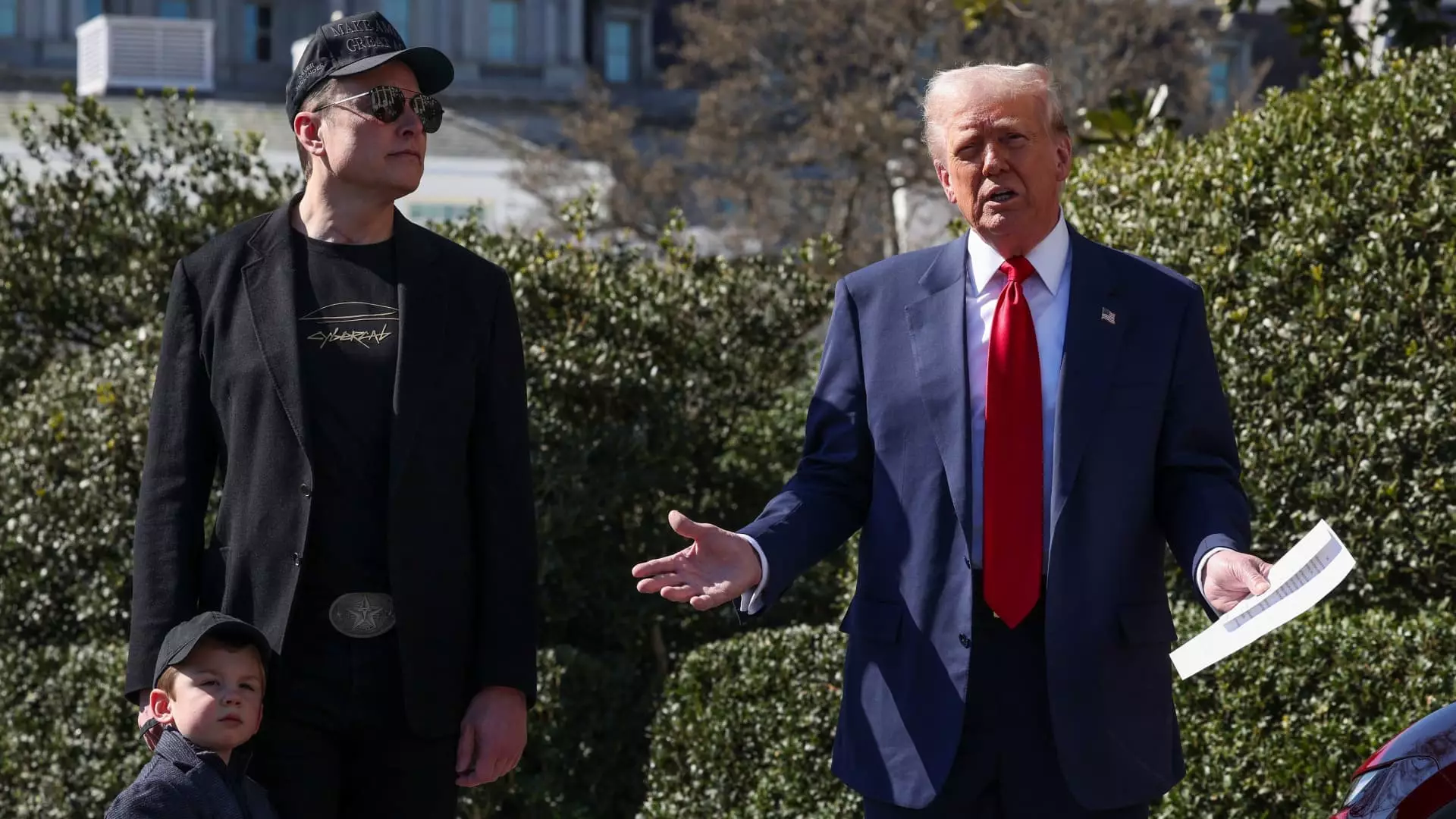Former President Donald Trump’s recent assertions about his intentions toward Elon Musk’s enterprises reveal a calculated effort to craft a favorable narrative amidst simmering political tensions. By publicly denying plans to undermine Musk’s companies, Trump aims to project an image of pro-business patriotism, emphasizing that his goal is for U.S. businesses to flourish. However, this rhetoric does little to conceal the underlying political game—a game centered on leverage, influence, and ideological positioning. Trump’s declarations, while framed as benevolent, function as strategic signals to both supporters and critics: he recognizes Musk’s enterprises as pivotal to America’s technological future and the economy but also as tools to be wielded when politically expedient.
This duality exposes a recurring pattern in political discourse where economic success is touted publicly, yet behind closed doors, the threat to shake up lucrative government contracts remains palpable. The veneer of support masks the underlying struggle over control of federally funded projects that serve as both economic lifelines and political chess pieces. Trump’s seemingly inconsistent stance emphasizes that committed political actors often oscillate between praise and intimidation—both driven by strategic priority, not genuine altruism.
The Power Struggle Over Government Contracts and Influence
Musk’s companies, notably SpaceX and Tesla, are deeply embedded in the federal government’s landscape, securing billions through contracts with NASA, the Air Force, and other agencies. These grants and contracts are more than mere financial transactions; they symbolize governmental trust and strategic importance. The Trump administration’s review—aimed at potentially curtailing these contracts—exposes the fragile relationship between political administrations and thriving private entities that directly benefit from federal largesse.
While Musk’s objections to tariffs and policy shifts might appear as standard corporate pushback, they’re also strategic challenges to government priorities. Trump’s prior flirtation with Musk, including supporting his advocacy efforts and funneling campaign contributions, was driven by mutual benefit: Musk received favorable policy attention, and Trump gained tech-savvy stature. Yet, the recent political rhetoric suggests a potential shift—an attempt to reassert control and diminish the influence of tech titans who might diverge from conservative priorities.
This ongoing tug-of-war underscores an uncomfortable reality: federal agencies’ reliance on these tech giants makes them vulnerable to political whims. Musk’s companies, irreplaceable in many federal initiatives, face the threat of losing vital contracts in a bid for dominance over the narrative of innovation and influence in national security and space exploration.
The Economic and Political Ramifications of Regulatory Credits and Federal Incentives
Tesla’s substantial revenue stream from environmental credits epitomizes a broader narrative of government policy shaping corporate profitability. These incentives—initially designed to promote environmentally responsible initiatives—have become lucrative assets for Tesla, effectively subsidizing their technological advancements and sales growth. When legislation like Trump’s proposed “One Big Beautiful Bill Act” faces potential rollback or amendments, Tesla warns of heightened financial risks. This interplay portrays the commodification of government policy, where regulatory frameworks directly impact corporate health.
The strategic importance of these credits introduces another layer to the political chessboard. If the incentives are diminished, Tesla and other companies could see reduced profitability, impacting their ability to innovate or compete. For Musk, the potential systematic rollback of these benefits positions him at odds with political actors prioritizing deregulation or seeking to curb the influence of green subsidies that benefit firms like Tesla. Conversely, supporters of these incentives argue they are instrumental in guiding the nation toward a sustainable future, making their potential removal a politically charged issue.
This scenario demonstrates how intertwined economic policy, environmental regulation, and political influence have become in shaping the future of American industry. It also exemplifies how policies ostensibly aimed at achieving social or environmental goals often serve as strategic tools in broader political alliances.
Implications for National Security and Technological Autonomy
The awarding of lucrative Defense Department and space contracts to Musk’s companies signals their importance to the national interest. Yet, this dependence exposes vulnerabilities—particularly if shifting political winds threaten to curtail such funding. The Pentagon’s review of SpaceX contracts, coupled with White House signals discouraging collaboration with Musk’s AI initiatives, suggest an era of strategic recalibration—one where political loyalty may weigh as heavily as technical excellence.
In an ideal scenario, America’s technological sovereignty depends on maintaining a balanced and resilient relationship with private industry. However, the current political dynamic threatens this balance, risking a disjointed approach to innovation that is subject to partisan whims. Whether Musk’s forward-thinking ventures will withstand this turbulence remains to be seen, but the erosion of trust and consistent messaging undermines the stability necessary for long-term strategic planning.
In this complex theatre of influence, Musk’s companies represent more than business ventures—they are vital nodes in a national security matrix that needs careful safeguarding. Political interference or opportunistic threats could slow down progress at a crucial juncture, leaving the U.S. less prepared to compete globally in space, AI, and complex technological domains.
Ultimately, the battle lines drawn between Trump and Musk are emblematic of broader ideological struggles—centrist conservatives seeking pragmatic economic growth, national security, and technological independence against the encroaching influence of regulation, green incentives, and political caprice. While Trump publicly claims favoritism for Musk’s ventures, behind the curtain, strategic moves suggest a different agenda: leveraging federal dependencies as leverage to shape the future landscape of American innovation and economic power.
In this tug-of-war, the stakes are high, with potential repercussions for innovation, economic stability, and national security. The real question remains whether these corporate giants can navigate this turbulent political terrain without losing the independence that once made them symbols of American ingenuity.

